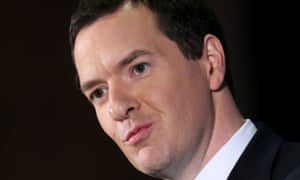Osborne is preparing to say that Brown’s policy decision to increase tax credits distorted welfare and made workers became dependent on the state, rather than an employer, for a decent income.
The chancellor – in the first budget he has been able to deliver without the Liberal Democrats – will temper the £12bn of welfare cuts with a rise in the personal tax allowance and a commitment to do more to persuade employers to boost pay to compensate for the loss of income, possibly by encouraging more employers to pay the living wage.
In addition to cuts to tax credits, predominantly child tax credit, ministers are considering forcing all housing benefit recipients to contribute to their rent. Housing benefit currently covers the full cost of the rent, but could be cut so all tenants have to pay at least 10% of the rent. Ministers have already said they will cut housing benefit for 18 to 21-year-olds.
It is also believed that Osborne would like to see the level of the welfare cap cut from £26,000 to £20,000 outside London and the south-east. There is also speculation that he might try to sweeten the medicine by introducing reforms to the bedroom tax – the loss in subsidy a tenant receives if they are living in accommodation deemed too large for their needs.
Osborne is under pressure to cut the top rate of tax back to 40p for those earning more than £150,000 – something he was blocked from doing by Nick Clegg in the 2012 budget. Reducing the top rate may cost the Treasury £900m.
Osborne knows the first budget after the election is the best moment politically to take difficult decisions, but if his choices prove unpopular with the electorate, it may damage his chances of succeeding David Cameron when he steps down.
Liberal Democrats warned the government off cutting Employment Support Allowance, but Conservatives believe they will benefit by portraying Labour as the welfare party counterposed by themselves as the party of work.
The aim is to portray Gordon Brown’s tax credit welfare state as an aberration that needs to be dismantled.
Announcing plans to abolish the existing child poverty targets this week, a necessary precondition to next week’s cuts in tax credits, Iain Duncan Smith, the work and pensions secretary, said that from 2002 to 2010 spending on tax credits more than doubled and cumulatively rose to £258m by the 2010 election.
He implied tax credits had been used as an electoral bribe, saying tax credit spending increased by £10bn in the two years before the 2005 election and then by £6bn in the two years before the 2010 election. Annual entitlement to tax credits had risen from £16bn in 2003-04 to around £29bn in 2013-14.

Leave a Reply